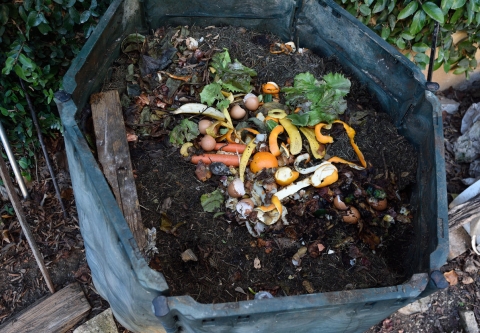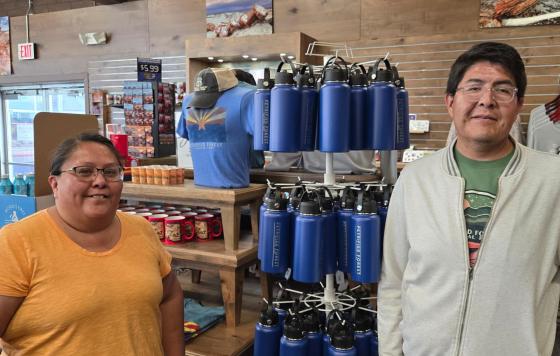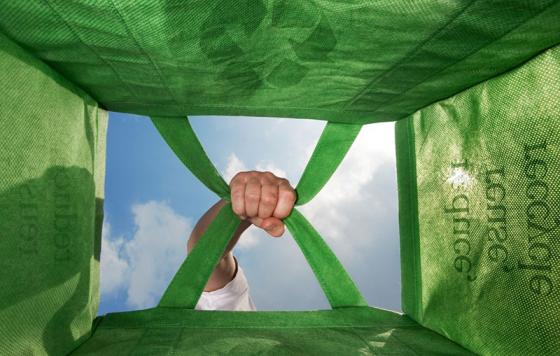
Today, we're in front of the Education, Energy, and the Environment Committee to testify in support of SB56, legislation that will create a dedicated funding stream for reducing food waste, developing composting infrastructure, and supporting the School Waste Reduction and Composting Grant Program! Check out our testimony below:
SB56: Food Waste and Solid Waste Reduction – Grants, Fund, and Surcharge
Senate Education, Energy, and the Environment
February 6, 2024
Position: Favorable with Amendment
Dear Chairman Feldman and Members of the Committee,
Clean Water Action and the undersigned 17 organizations urge a favorable report on SB56 with amendments to conform it with forthcoming legislation from Delegate Boyce.
Maryland has commendable goals to reduce food waste and increase organic recycling. These efforts have significant co-benefits, improving food security for our residents, reducing greenhouse gas emissions from food rotting in landfills or burning in incinerators, and enables our farmers to diversify their income and reduce climate-polluting synthetic fertilizers. But we know that a major limiting factor for the expansion of infrastructure and programs reducing food waste and recycling organics is cost. Maryland has no dedicated funding streams for reducing and diverting food waste.
Maryland has made great strides reducing methane emissions from landfills, with more stringent methane regulations on landfills. Controlling the amount of methane from a landfill is great, but another effective strategy is to reduce the amount of methane-producing organic waste from entering the landfill in the first place.
Funding practices like cold storage for food rescue, on-farm compost, school grants, and upcycling through a modest $2 per ton surcharge on waste disposed of at landfills and incinerators will provide tangible benefits and fund Maryland’s goals and its unfunded programs, like school grants for food waste reduction and composting, which passed in 2022 but requires an annual appropriation.
SB56 funds food waste and organic diversion through four grant programs:
1. Wasted Food Reduction and Diversion Grant Program (MDE)
This fund will give MDE the ability to fund infrastructure, programs, and education that reduces, rescues, and diverts wasted food in the state. Examples of these could be rescuing food to feed people or animals, like expanding cold storage or connecting farmers with suitable food waste generators.
2. On-Farm Organics Diversion and Composting Grant Program (MDA)
While farmers may be interested in generating their own compost or using compost, the practice does require specialized equipment, training, and has other costs. These grants will help defray those start-up costs and enable MDA to better support farmers as they seek to incorporate compost and organic recycling into their operations.
3. School Waste Reduction and Composting Program (MSDE)
These grants were created in 2022 and funded in 2023. Applications for 2024 closed in early January and are currently under review. These grants fund school waste reduction (like share tables and food donation) as well as composting.
4. Circular Economy Incentive Program
This program will award grants or other incentives to develop methods for upcycling and remanufacturing materials.
This model is successful in numerous other states and has had positive impacts on local communities, economies, and the environment.
Amendment:
Delegate Boyce has a very similar bill still in drafting. The two bills have similar intents, but Delegate Boyce’s version has additional changes that were worked out with MDE and MDA after the pre-filing deadline. The changes are designed to make the legislation easier for the departments to implement the legislation and grant programs.
The changes clarify agency administrative costs, widens the scope of projects to include organics recycling as opposed to just composting, updates the timeline to better align with existing agency processes, allows for the agencies to access surcharge revenue while setting up the grant programs, and stipulates that an applicant may not receive a grant from more than one of the programs in the same calendar year.
We recommend that the Committee conform SB56 to the language of Delegate Boyce’s bill to incorporate these changes.
Thank you and we urge a favorable report,
Clean Water Action
Cedar Lane Unitarian Universalist Environmental Justice Ministry
Lunch out of Landfills
#CoalFreeCurtisBay
Go Green OC
Zero Waste Montgomery County
Prince George's County Food Equity Council
Less Plastic Please
Curtis Bay Association
Chesapeake Physicians for Social Responsibility
Echotopia LLC
Chesapeake Physicians for Social Responsibility
Regenerative Solutions
ACQ Climate
Green Sanctuary committee, Unitarian Universalist Church of Silver Spring
Maryland League of Conservation Voters
Maryland Legislative Coalition - Climate Justice Wing


